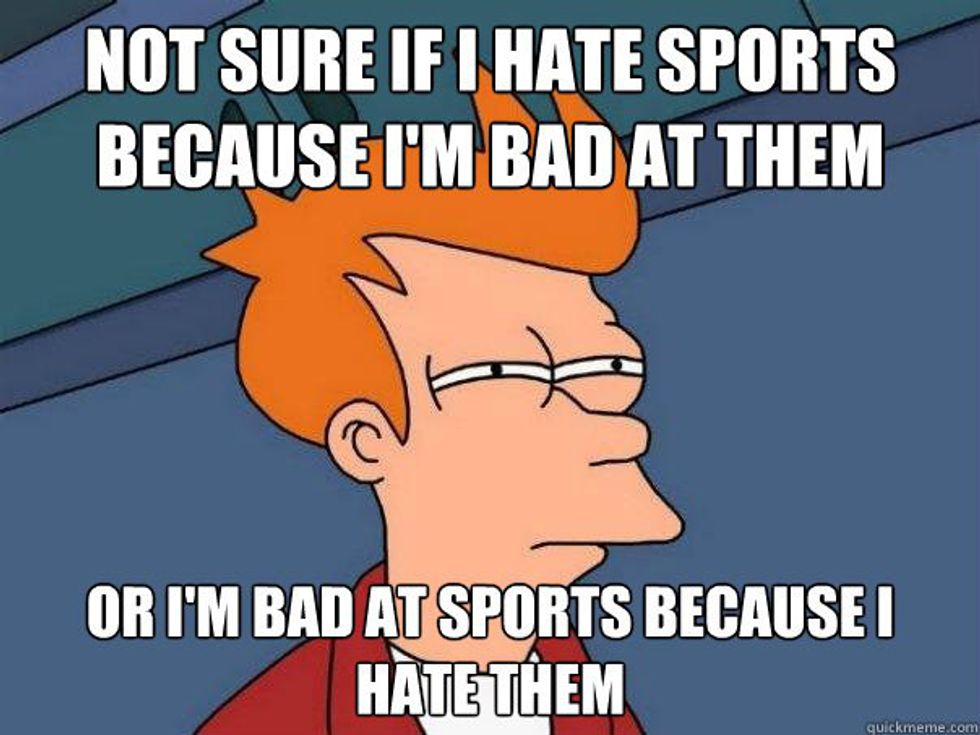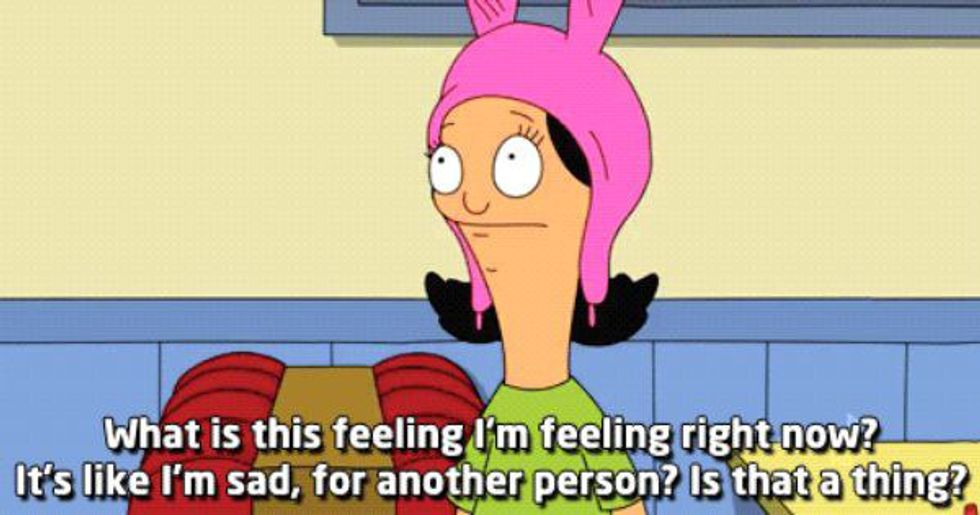I am not athletic, and I am okay with that.
I was unwillingly sucked into sports at a young age. My siblings and friends all played basketball, football, tennis, soccer, track and field, etc. and of course, there was gym class every week. I tried my hand at them all and had little success -- I was always smaller and slower than everyone else and had awful hand-eye coordination. I was usually in last place and chosen last for teams. I found some success in dance classes at a local studio and tennis, where I could participate in an art form, or play on my own terms and at my own pace.

My small high school didn't have enough money to have funding for the arts and athletics, so sports reigned supreme. You weren't cool if you didn't play sports. I played both tennis and soccer, with soccer being the most frustrating experience of my life. Finally, I threw my soccer cleats into the back of my closet, never to be seen again, after a disappointing sophomore season of sitting on the bench. I resented that I was socially forced into participating in an activity I hated.
As a senior about to graduate college with a theatre degree, I look back at my time in high school spent sitting on the bench, and I'm amazed at what being bad at sports taught me. Here are a few things I learned growing up bad at sports:
1. I learned to be patient.
Sitting on the bench waiting to be put in the last three minutes of a game sucks. There were plenty of times where I sat on a cold metal bench in a snowstorm or rainstorm and didn't see any action on the field. Although at the time it was frustrating and upsetting, I realize now that I learned how to control my natural impatience and to persevere when I was feeling frustrated.
2. I learned to be resilient.
Resilience is the ability to bounce back from stress or other challenges. Many times I went home from a practice or a game angry because I was not able to accomplish what I wanted or participate in a game. However, I refused to let failure and rejection break my spirit, and I became a stronger person. I've been able to apply this to auditions, job interviews, college classes, etc. It's a great life skill and I'm lucky to have learned it at a young age.
3. I learned to be humble.
C.S. Lewis wrote, "Humility is not thinking less of yourself, but thinking of yourself less." I recognized and accepted my lack of athletic skill, and although it was hard, I cheered on my teammates and classmates when they won individual awards or led teams to state championships. I learned not to complain at practice because it brought down the attitude of the team. Instead, I focused on trying my best and supporting my teammates.
4. I learned to be empathetic.
Sports were not the right extracurricular activities for me, but unfortunately, I went to a small school with not a lot of options. Sitting on the bench game after game made me sad and frustrated, but understanding those feelings has taught me how to sympathize with other people. Being excluded sucks, and I know how to recognize when someone is being excluded from a conversation or activity and how to include them.
Being bad at sports as a kid and a teenager was really hard. However, it was the activity that almost everyone in my school system was expected to participate in. I soon learned that I was trying to be good at something I was terrible at in order to fit in, not for the love of the game. Although I retain little athletic skills, I'm eternally thankful for the life lessons I've learned.
However, I think I'll stick to the cheering section.









 Photo by
Photo by  Photo by
Photo by  Photo by
Photo by  Photo by
Photo by  Photo by
Photo by 












